‘I have dedicated my life to instilling the values of our Liberation war in youths’

There are only a few cultural personalities as prolific as Nasir Uddin Yousuff Bachchu, our eternal pride, and a valiant freedom fighter who solidified his name as a cultural icon, theatre activist, filmmaker and bold cultural voice since the independence in 1971.
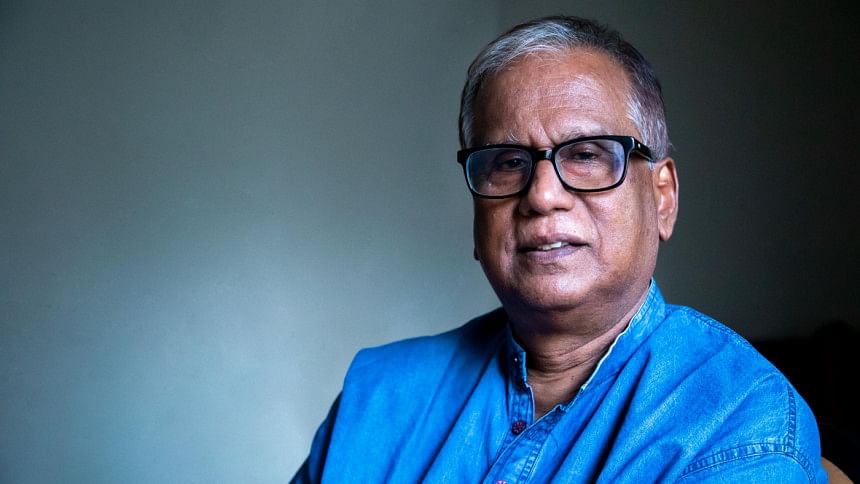
The "Guerilla"-famed director recently took an exemplary initiative by successfully arranging the inaugural two-day International Disability Art Festival 2024 (April 26-27) through his founding theatre troupe, Dhaka Theatre, and the British Council.
In an exclusive interview with The Daily Star, the eminent artiste talked about his Liberation War days, our independence, theatre activism, his upcoming film projects, and more.
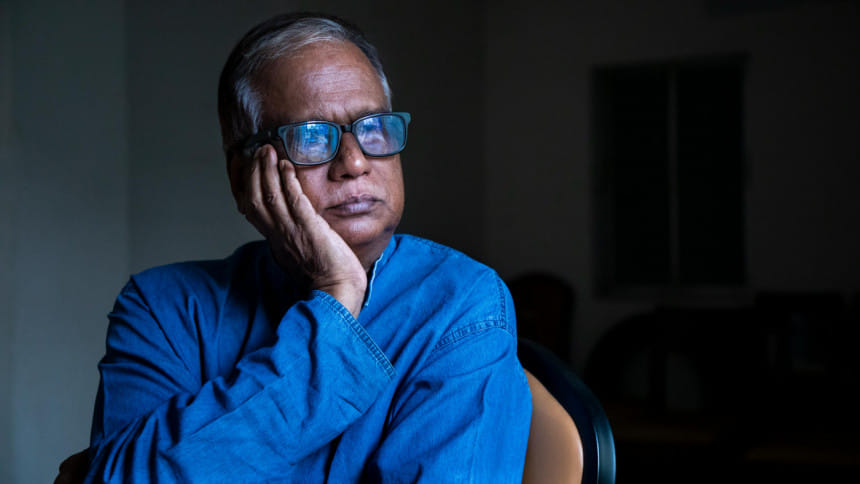
Inspired by Bangabandhu's ideals, as just a student, Nasir Uddin Yousuff threw himself into the Liberation War to free the country in 1971. Risking his life on the battlefield, he returned with an invaluable gift for the country — a much cherished, eternal independence.

"I was about to turn 21 when the war began, reaching the age of rebellion through it. The student movements of the 1960s were crucial. During that time, two major movements were happening in Bangladesh: a cultural movement and the nationalist movement," said Nasir Uddin, reminiscing his earliest days of political and cultural activism.
"The song 'Amar Bhaiyer Rokte Rangano Ekushey February' deeply influenced youths like us. It kind of sparked the nationalist movement and started a revolution to seek a sovereign state and unique cultural identity," he recalled.

"By banning Rabindranath's songs, Ayub Khan merged culture and politics and as very cultural beings, we couldn't let it happen.. Leaders like Bangabandhu Sheikh Mujibur Rahman and Maulana Abdul Hamid Khan Bhashani made it a primary issue, beginning the Bengali nation's journey of its own identity as a nation. We grew up with slogans and songs shaping our upbringing. Therefore, it was obvious that we would revolt against the oppressors," said the war hero, who was also a member of the valiant Crack Platoon in the Liberation War of 1971.
"As intriguing as it is, both Bangabandhu and Maulana Bhashani used to recite poetry during political speeches. Our cultural aspirations drove us toward nationalism. Bangabandhu's six-point movement and the mass uprising of 1969 saw millions demanding independence and democracy, inspiring us," the artiste explained.

"The state should remain in the spirit of the Liberation War, embodying consciousness and humanity. It should be for all people, not just Bengalis or Muslims. This was the essence of our struggle," he stated.
"After our independence, in 1972, Mamunur Rashid and Kabir Anwar formed Parapar Natya Goshthi, along with Bohubachan and Aranyak, pioneering an extraordinary theatre movement through their politically correct productions," the artiste expressed.

"I used to sell tickets and set up lights for their plays, which ignited my desire to pursue theatre. In 1973, we moved to Dhaka Theatre, aiming to produce Bangladeshi plays. Influenced by Jean-Paul Sartre, Albert Camus, Ionesco, and Rimbaud, we created original works," Nasir Uddin Yousuff, stated regarding his sudden inclination towards theatre.

"I was most intrigued by Selim Al Deen and Hasibul Hasan's plays, and those were the first at Dhaka Theatre. We performed at the Dhaka Sports Association auditorium, a modest venue with tin roofs. Tickets sold out in advance, and prominent poets and professors attended our shows. Bichitra magazine featured our theatre group in 1973. You can say that kind of made me a theatre practitioner by heart."
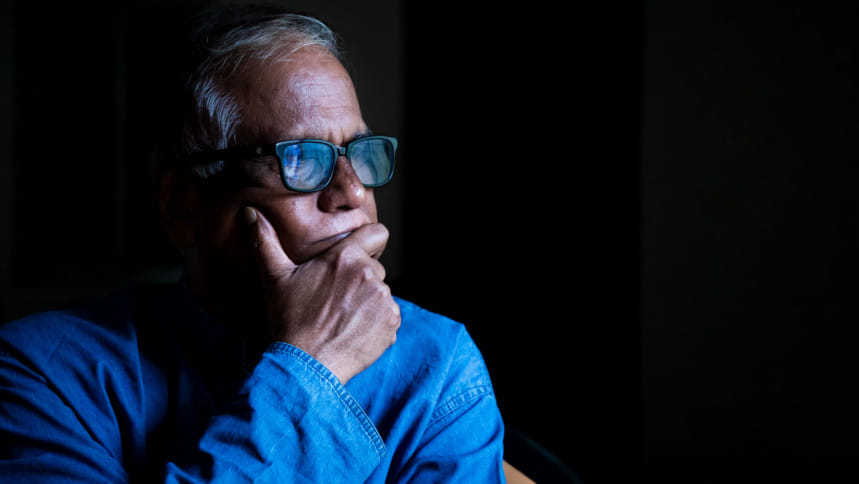
The thespian, who directed legendary plays like "Kitton Khola" (1981), "Keramot Mongol" (1985), "Hat Hadai" (1989), "Joiboti Kannyar Mon" (1995), and "Bono Pangshul" (1998), is occupied with numerous theatre and film projects up his sleeve. "I plan to direct at least one play and one cinema per year," he said with a polite grin as he feels that he is too busy with social activism nowadays.
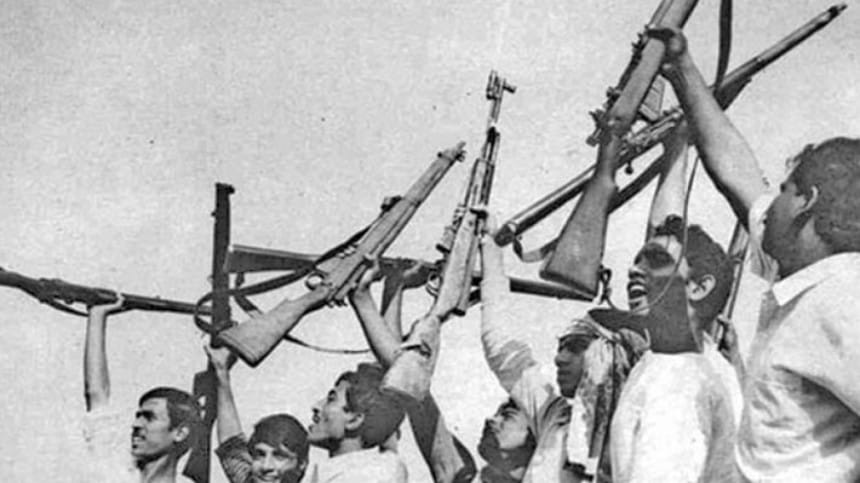
"The concentration of my cinema, theatre, drama and no matter what kind of projects I take on, will always be centred on either our Language Movement or the Liberation War. This is not just because I am a freedom fighter and I love my country and people, rather it is because we have to remember, highlight and showcase our struggles as a nation to inspire the younger generation. We have to make them understand where we came from, only then true cultural development is possible," said the cultural icon.

Nasir Uddin Yousuff mentioned that although he would love to make more films, probably three or four more in his lifetime, his sole concentration and love will always be with theatre. The director plans to produce a play on Selim Al Deen's text this upcoming August, commemorating Selim's 75th birth anniversary, through Dhaka Theatre.

Planning to patronise the Group Theatre Movement in the villages of Bangladesh, the artiste concluded that he wants to make a film based on the Language Movement of 1952 and his favourite discourse, the Liberation War, stating, "You see, the Liberation War was a dream for us, a dream of an independent, sovereign country. We have to imbue the spirit of the Liberation War within our younger generation, and I will keep doing just that in my lifetime."

 For all latest news, follow The Daily Star's Google News channel.
For all latest news, follow The Daily Star's Google News channel. 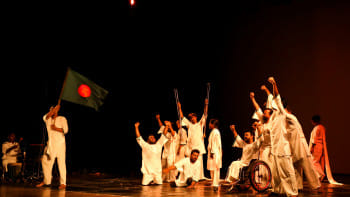



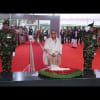
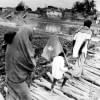
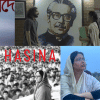
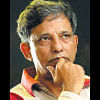


Comments